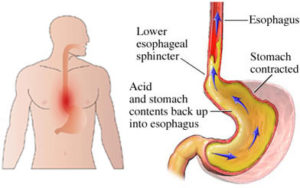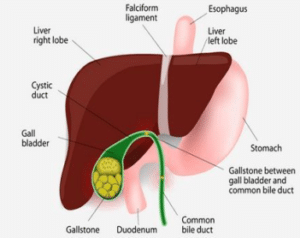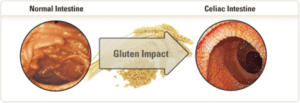When to seek the help of a Gastroenterologist
A Gastroenterologist is a highly trained physician that has received specialized education for the treatment of diseases related to the stomach, intestines, esophagus, liver, pancreas, colon and rectum. Gastroenterologists, upon completion of medical school, must go through an additional 5+ years of education of Gastroenterology and medical school.
With that said, Gastroenterologists are able to effectively treat patients for an array of conditions and should problems arise in areas that we mentioned above then it’s time to seek the help of a Gastroenterologist.
For this article, we were able to sit down with one of Florida’s leading Gastroenterologists (Dr. Vikram Tarugu) where we received some information on what signs and symptoms a patient should look for when determining if Gastroenterologist intervention is necessary.
Common symptoms that you should see a Gastroenterologist for include:
Heartburn

Gallstones

Common symptoms include a sudden and sharp pain towards the right side of the abdomen.
The causes and development can be initiated by Blood Sugar Imbalances, Estrogen Dominance, Food Allergies/Sensitivities, Chronic Stress, Low Fiver Diet, Low Stomach Acid Production, Obesity, Rapid Weight Loss, and Low-Fat Diets.
Gallstones develop when there’s an imbalance in the liquid that’s produced by the liver which is known as “bile”. If you have symptoms of Gallstones, Gastroenterologist intervention is necessary. Treatment of Gallstones includes the removal of the gallbladder while in some cases the Gastroenterologist will make use of medication to dissolve the stones.
Lactose Intolerance
While being a common disorder, being “Lactose Intolerant” means that your body does not produce enough protein lactase to either break down or digest the content found in dairy products. Common symptoms of being lactose intolerant include bloating, stomach pain, gas and diarrhea after consuming dairy products (symptoms may not occur for 2-3 hours after consuming dairy products).
If you haven’t yet been diagnosed as being lactose intolerant, it’s highly suggested that you seek the help of a Gastroenterologist as you’ll be able to find out if you have this condition.
Undergoing a medical exam for this is important as if you are lactose intolerant, the Gastroenterologist can help to suggest (and in some cases “provide”) dietary supplements and alternatives which would help you to avoid the consumption of products that will initiate the symptoms.
Celiac Disease

While avoiding the consumption of foods containing gluten properties can alleviate the pain, it’s highly suggested that you visit a Gastroenterologist as treatment may need to be performed depending on the amount of inflicted intestinal damage.
Other signs of possibly serious conditions that would require the attention of a Gastroenterologist include:
- Rectal bleeding
- Leakage/underwear stains
- Bowel movement urges that are hard to control
- Diarrhea
- Change in bowel habits
- Pale-colored stools
- Dark urine
- Heartburn (acid reflux)
- Abdominal pain or bloating
- Excessive gas or belching
- Esophageal pain
- Vomiting
- Loss of appetite or weight
- Lethargy
If you’re experiencing any of the symptoms that were discussed in this post then immediately seek the attention of a Gastroenterologist so your condition(s) can be diagnosed and properly treated. Avoiding or prolonging treatment can further complicate and worsen the condition so an immediate medical evaluation is highly recommended!
Dr. Tarugu has won many awards for safety and timeliness. Visit his center today and see why so many are calling him “The Best Gastroenterologist in Florida“!
The post When to seek the help of a Gastroenterologist appeared first on Gastroenterologists In Florida.
from
http://gastroinflorida.com/seek-help-gastroenterologist/

No comments:
Post a Comment